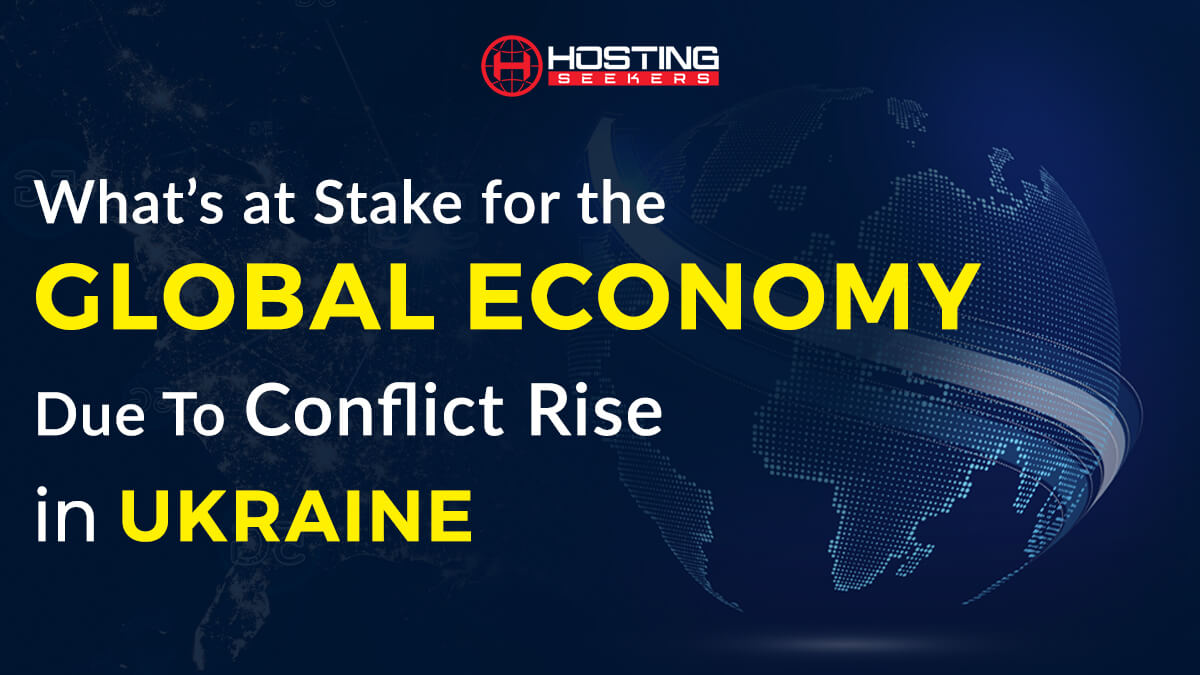
Is Global Economy at Stake as Conflict Looms In Ukraine? Let’s find out
News Updated on : February 24, 2022Countries that highly depend on the Ukraine regions’ rich supply of energy, wheat, nickel, and other staples can experience the pain of price spikes.
The global economy has already got thrashed down due to the pandemic, supply chain chokeholds, and leaps in prices. After all these, the economy has been sent on yet another unpredictable course by an armed clash on Europe’s border.
Russia’s invasion of Ukraine can have an adverse effect on a number of markets, right from wheat and energy prices to stock marketers to the region’s sovereign dollar bonds to safe-haven assets.
Let’s see five charts that represent where the potential escalation of tension could be felt in the global economy.
1. Safe Havens
Russia’s invasion of Ukraine risks the increase in oil prices, which ultimately increases inflation.
The Russia-Ukraine conflict can change the bond market for the first time since 2019. The U.S which is hovering close to the key 2% for 10 years and German yields above 0% for 10 years can be changed now.
The euro/Swiss franc exchange rate witnessed the biggest indicator of geopolitical risk in the eurozone of the Forex market.
Gold can also be considered as shelter during the conflict which is clinging to 13 months peak.
2. Wheat & Grains
Black Sea region is likely to get the heavy impact of rising prices and further fuel flood inflation during the pandemic.
Black Sea imports grains from four major exporters Ukraine, Russia, Kazakhstan, and Romania, and thus can experience disruptions from any military action or sanctions.
3. Energy Market
The energy market that includes natural gas and oil is likely to get hit if the current tension turns into conflict. Europe is dependent on Russia for around 35% of its natural gas, which mostly comes via pipelines, which crosses Belarus and Poland to Germany, Nord Stream 1 which then goes directly to Germany, and other regions through Ukraine.
4. Company Exposure
Western firms can also feel the consequences of a Russian invasion, as Britain’s BP owns a 19.75% stake in Rosneft which is a third of its production. Britain also has various joint ventures with Russia’s largest oil producers.
Shell has a 27.5% stake in Russia’s first LNG plant, Sakhalin 2, which sums it up to 3rd position of the country’s total LNG exports.
U.S based energy firm Exxon operates through a subsidiary, the Sakhalin-1 oil, and gas project. India’s state-run explorer Oil and Natural Gas Corp also holds stakes in it.
5. Regional Bonds, Dollars, and Currencies
Russia and Ukraine dollar bonds have underperformed in recent months as investors backed out due to the increasing tension between both countries.
The tension had taken a toll even before the Kremlin ordered Russia to invasion Ukraine on Monday. President Biden promised to punish sanctions. Russian retaliation had already pushed down the stock market that gave rise to gas prices.
The attack of Russia can cause dizzying spikes in energy, food prices, fuel inflation fears, and spook investors, a solid combination that threatens the economy of the world.
Jason Furman, a Harvard economist a former adviser to President Barack Obama said – Russia is not so important in the global economy except for oil and gas. Therefore, it is denoted as a big gas station.
Of course, this conflict will be a crippling effect on those who depend largely on it. Thus the economic damage will be spread unevenly, with intense effect in some countries and industries, while it will be unnoticed in other countries.
Russia is the world’s largest supplier of wheat, and together with Ukraine, it accounts for nearly a quarter of total global export. Countries like Egypt and Turkey are highly dependent on them.
Ukraine known as the “breadbasket of Europe” provides more than 40% of its wheat and corn to the Middle East and Africa, thus these countries may face a shortage of food storage and price increase.
Europe’s dependency on Russian gas is in a discussion about expanding energy sources, which may sideline Russia’s presence in the global economy.
If you enjoyed reading this news, you are surely going to cherish these too –
- Latest High-Performance Object Storage Solution Introduced By OVHcloud
- Major Cloud Event CloudFest 2022 Got A Go-Ahead To Start From March 22
- CommVault Released Metallic Data Management As-a-Service (DMaaS) in Japan




